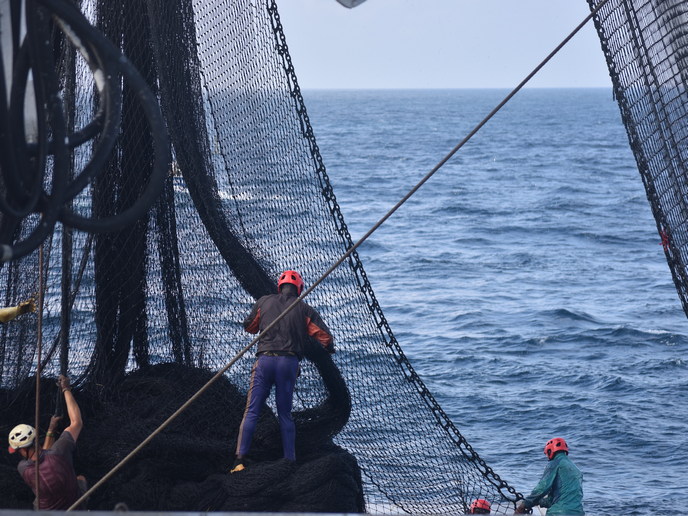Tuning up: Technological improvements for the tuna industry
Europe is working to improve the profitability and sustainability of its fishing industries. Catches for most species are at capacity, so improvements must come from creative solutions that do not involve an increase in the quantity of fish taken from the sea. The EU-funded SUSTUNTECH project developed a multi-faceted approach that draws on research expertise, commercialised solutions and data provided by Earth observation systems to make the tuna industry more efficient.
Fuel savings for the fishing fleet
Between 1990 and 2011, the average emissions of the tuna industry grew by 21 %. Tuna is a migratory, open ocean species, thus locating schools at sea can involve long voyages. Fuel accounts for roughly 50 % of the operational costs on tuna vessels, and SUSTUNTECH anticipates a savings of 20 % or more in fuel costs with its targeted solutions. To demonstrate and validate their solutions, the project set up an onshore facility and two tuna fishing vessels equipped with the project’s monitoring system. MarineView, developed by project partner Marine Instruments, provides sea buoys that transmit data on the size of tuna schools gathered beneath them. Building on this technology, the project developed the software application SmartMarineView that incorporates machine learning algorithms to allow the user to visualise optimal routes to fishing grounds. Route optimisation is a key strategy to reducing fuel consumption. Engine performance is another important factor to reduce fuel costs. MarPrime Plus, designed by Maridis, evaluates and diagnoses the performance of shipboard engines. This tool collects important information about fuel consumption and can provide early detection of problems. Targeted and informed maintenance of engines is another important measure for raising the level of fishing fleet fuel efficiency.
Working with Ratatosk and Copernicus
While SmartMarineView and MarPrime represent solutions already at the commercialised level, Ratatosk, developed over multiple research projects coordinated by Sintef Ocean, is now ready for commercial launch. Ratatosk is software that facilitates real-time communication and data exchange by providing an onboard data space. With Ratatosk set up, data from sensors and other software applications can inform ship-board decisions. In addition to developing this suite of solutions, SUSTUNTECH also made use of data from the Copernicus Marine Environment Monitoring Service (CMEMS), an Earth observation system built on a constellation of satellites that provides information to citizens all over the world. Data gathered by fishing vessels is shared with Copernicus to validate and improve the project’s solutions. With a consortium that includes industry players and research institutions, SUSTUNTECH is on the cusp of commercial viability. According to project coordinator Begoña Vila Taboada: “Increasing the digitalisation of the tuna fleet with the introduction of tools such as the ones developed during this project is essential to provide our potential customers with the necessary information to reduce time at sea and the environmental impact of their activities: our goal is to be part of this process.” End-users are excited by the opportunity to apply SUSSUNTECH solutions. According to Janire Ortuzar, a representative of the Echebastar fishing company involved in SUSTUNTECH: “We are delighted to be involved in this project, where one of the main objectives is to promote sustainable fishing by improving the detection of fish distribution, reducing time at sea, saving fuel and identifying better planning routes, which together contribute to the reduction of greenhouse gases.”
Keywords
SUSTUNTECH, fishing, tuna industry, digitalisation, digital solutions, fuel savings, marine instruments, Copernicus Marine Environment Monitoring Service, sustainability, efficiency, sustainable oceans



